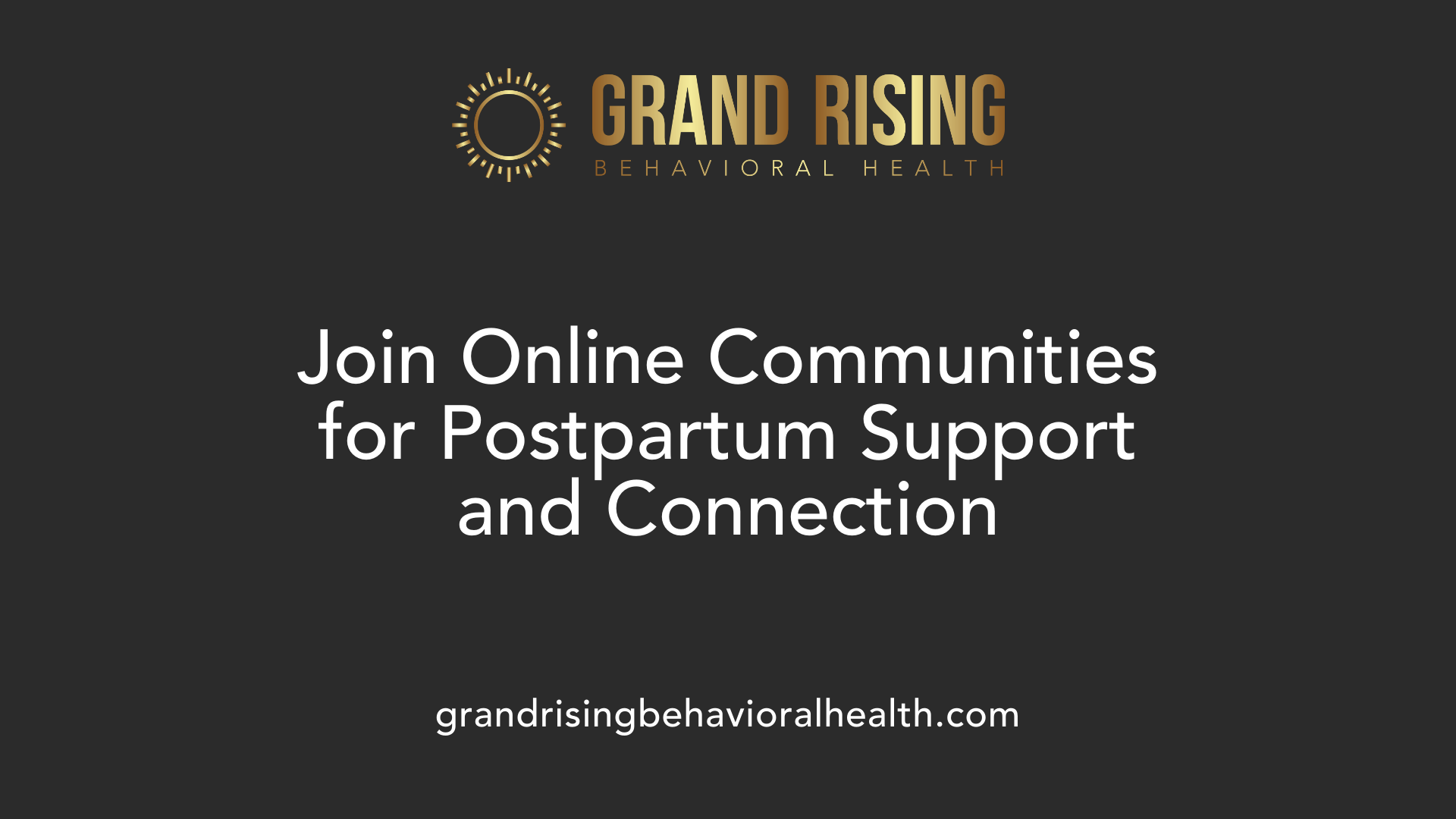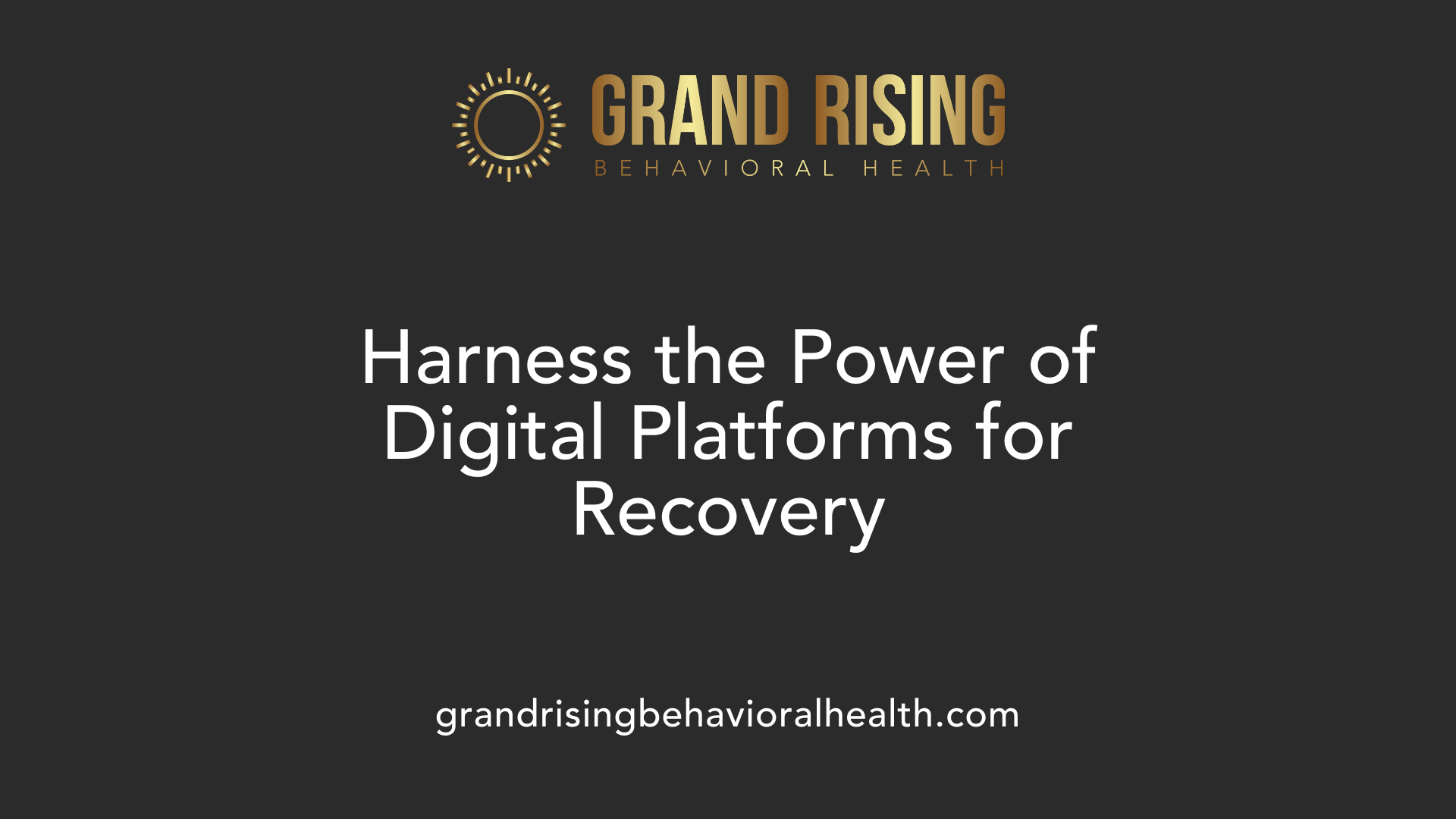Online Communities for Postpartum Depression Support
Bridging the Gap: How Digital Support Transforms Postpartum Mental Health Care

Understanding the Power of Online Communities in Supporting New Mothers
Postpartum depression affects a significant number of women worldwide, often leaving them feeling isolated and overwhelmed. As technology advances, online communities have emerged as vital support networks, offering comfort, information, and connection to empower women during this challenging period. This article explores the landscape of digital resources, support groups, and online forums dedicated to postpartum mental health, highlighting their role in complementing traditional care and fostering recovery.
Overview of Resources and Support Options for Postpartum Depression

What resources and support options are available for postpartum depression?
Women experiencing postpartum depression have access to a wide range of support systems and resources designed to help them cope and recover. Community-based support groups, including those hosted by organizations like Postpartum Support International (PSI) and The Motherhood Center, offer free, virtual, and in-person peer support led by trained facilitators or mental health professionals. These groups are inclusive and tailored to diverse populations, such as BIPOC, LGBTQIA+, military families, and partners.
Helplines are critical immediate resources. The Postpartum Support International helpline (1-800-944-4773) provides confidential support, while the SAMHSA National Helpline (1-800-662-HELP) offers guidance on behavioral health services. The 988 Suicide & Crisis Lifeline is available for urgent crises, ensuring immediate assistance when needed.
Educational materials, screening tools, and self-assessment quizzes are widely available online. These resources help women identify symptoms early and seek appropriate care. Digital apps like "Connect by PSI" facilitate ongoing peer support and community connection, making assistance accessible regardless of location.
Professional care options include therapy, counseling, and medication managed by healthcare providers. Many providers now offer telehealth services, broadening access for women in rural or underserved areas. Local directories help women find nearby qualified providers.
In summary, postpartum depression support is comprehensive. It includes crisis helplines, community support groups, educational resources, professional treatments, and digital platforms—all aimed at fostering recovery and reducing feelings of isolation.
The Rise and Role of Online Support Communities in Postpartum Mental Health

What are online support communities for postpartum depression?
Online support communities for postpartum depression are digital platforms where women experiencing mental health challenges after childbirth can find connection, understanding, and advice. These communities come in various forms, including online forums, social media groups, dedicated websites, and virtual support meetings. Platforms like Postpartum Support International, What to Expect, and dedicated apps such as 'Connect by PSI' facilitate these interactions.
Many support groups are moderated by healthcare professionals such as therapists, counselors, or trained peer supporters. This professional involvement helps ensure that the information shared is accurate and helpful. Members often discuss issues like postpartum depression, anxiety, OCD, PTSD, and grief, sharing personal experiences and coping strategies.
These platforms also cater to diverse groups, including BIPOC (Black, Indigenous, and People of Color), LGBTQIA+ community members, military families, and parents of multiples. Such tailored support helps address the unique challenges faced by different populations.
Participation in online communities offers emotional validation and reduces feelings of isolation. They provide practical advice, education about postpartum mood disorders, and a safe space for sharing personal stories. This peer support often complements formal treatment, helping women feel heard, understood, and supported on their journey to recovery.
Overall, these digital platforms serve as accessible, affordable, and vital resources, empowering women and families to navigate postpartum mental health challenges effectively.
Facilitating Recovery and Support Through Digital Platforms
 Online support communities are transforming the way women experiencing postpartum depression seek help, find understanding, and build resilience. These platforms, including forums, social media groups, and dedicated apps, provide accessible, anonymous environments where women can share personal stories, ask questions, and receive guidance from peers and professionals.
Online support communities are transforming the way women experiencing postpartum depression seek help, find understanding, and build resilience. These platforms, including forums, social media groups, and dedicated apps, provide accessible, anonymous environments where women can share personal stories, ask questions, and receive guidance from peers and professionals.
Support in these communities often takes three forms: emotional, informational, and instrumental. Emotional support involves validation and empathy from others who understand the challenges of postpartum mental health. Informational support offers evidence-based advice on coping strategies, treatment options, and managing symptoms. Instrumental support can include practical help, resource sharing, and connecting women with local services.
One of the greatest benefits of online groups is their role in reducing stigma. Open conversations about postpartum depression become normalized, encouraging women to seek help without fear of judgment. These communities foster a culture of openness, making it easier for women to discuss sensitive issues like postpartum OCD, bipolar disorder, or trauma, which are often hidden due to social stigma.
Professional moderation within these groups ensures that the guidance provided is accurate and helpful. Certified mental health professionals or trained peer supporters lead many online groups, offering expert advice and guiding discussions safely. This professional oversight helps prevent misinformation and provides a safe space for honest sharing.
Expanding social networks beyond geographic limitations, online communities help women feel less isolated during a vulnerable period. Connecting with others who are experiencing similar struggles fosters a sense of belonging and hope. Evidence shows that participation in online support groups can lead to reduced depression levels, increased self-efficacy, and continued behaviors such as breastfeeding.
Research supports the effectiveness of these digital platforms. For example, a study examining 512 messages in postpartum depression online groups found that most posts provided emotional support, followed by informational aid. This ongoing peer engagement has been linked to positive significant reductions in depression symptoms over time.
In summary, online postpartum support communities promote recovery by offering a holistic approach: emotional validation, reliable information, practical support, reduced stigma, and expanded social connections. These platforms complement traditional care, making help more available, timely, and tailored to each individual’s needs, ultimately enhancing mental health outcomes for new mothers.
Digital Resources and Training Initiatives Supporting Postpartum Mental Health

Are there organizations delivering online education and training on postpartum mental health?
Yes, numerous organizations provide online education and training focused on postpartum mental health. A prominent example is the Substance Abuse and Mental Health Services Administration (SAMHSA), which offers a wealth of evidence-based resources, clinical guidelines, awareness campaigns, and crisis support services related to mental health, including postpartum issues. These resources are accessible online and are aimed at broad audiences, including healthcare professionals, families, and individuals experiencing postpartum challenges.
Another key player is the Perinatal Social Initiative (PSI), which provides online webinars, certification courses, and professional training on various perinatal mental health topics. PSI's offerings cover essential areas such as postpartum mood disorders, psychopharmacology, and trauma-informed care, supporting clinicians and peer supporters in improving care quality.
Additionally, the Maternal Mental Health Leadership Alliance curates specialized professional training programs like the Mothers and Babies Online Course (eMB). This course is designed to be accessible and equips healthcare providers with vital skills to support postpartum women effectively.
These organizations leverage digital platforms to promote education, raise awareness, and improve mental health support across communities. They play a critical role in equipping both healthcare providers and perinatal women with the knowledge and skills needed to recognize, prevent, and treat postpartum mental health issues.
Empowering Mothers Through Digital Support
Online communities and digital resources have revolutionized postpartum mental health support, offering accessible, diverse, and evidence-based options for women worldwide. These platforms reduce stigma, foster community, and complement traditional healthcare by providing emotional validation, practical advice, and ongoing support. As technology continues to evolve, the integration of online peer support, professional guidance, and educational initiatives will be crucial in ensuring that every mother receives the understanding and care she needs during her postpartum journey.
References
- Weekly Online Support Group | Join a Free Group Today
- SAMHSA - Substance Abuse and Mental Health Services ...
- Postpartum Depression Support Groups - Find PPD ...
- Online Support Groups
- Postpartum Support International - PSI
- Support Groups
- Finding Support for Postpartum Depression
- Perinatal & Postpartum Resources
- 6 Best Postpartum Support Groups in Los Angeles
More Resources
A team ready to start your journey.
Get in touch — today.
We are a safe space – a haven for exceptional individuals to receive discreet, personalized, in-person treatment and care.
.avif)










